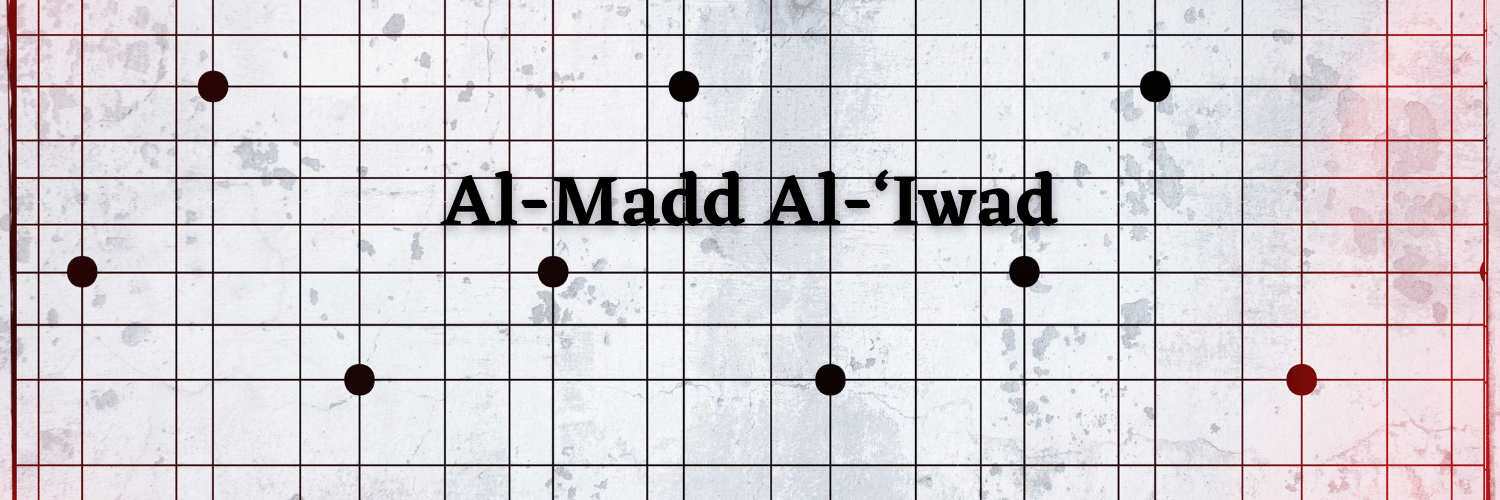Have you ever wondered why many people have opted to take the escalator instead of stairs? Have we compensated health for convenience? Will you sound this compensated madd?
![]()
Al-Madd Al-‘Iwad: compensated prolongation, occurs only at the end of a word that has tanween fat-h.
![]()
It’s conditions are as follow:
1. A word ends with tanween fat-h ( اً ) which has caused the word to end with the letter alif ( ا )
2. You will stop after this word (e.g. you have reached the end of an ayah)
3. You must prolong the alif for two counts without pronouncing the tanween fat-h
4. This madd is void if you are not stopping after the word, i.e. you sound the tanween fat-h and continue reading
![]()
Let’s take a look at some examples and view the above conditions practically.
![]()
Examples of madd ‘iwad:
حَكِيمًا
hakeemaa
عَذَابًا أَلِيمًا
‘athaaban aleemaa
إِذًا أَبَدًا
ithan abadaa
عَلِيمًا خَبِيرًا
‘aleeman khabeeraa
![]()
Here you can see how the madd becomes void when you are continuing onto the next word, and how it is sounded when you are stopping. Of course, what ever you do, keep in mind that this madd is only for tanween fat-h. You definitely do not say a madd when it is tanween damm or kasr.
![]()
Resources link:
–‘Jadwal Al-Mudood’, fourth madd listed
-‘Tajweed Basics Foundations And More’ covers a range of mudood
–Tanween [Gatway To Arabic: pages 40-43]
![]()
Note, these documents are found on the resources page.






0 Comments
Oops comments are disabled